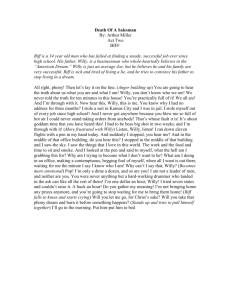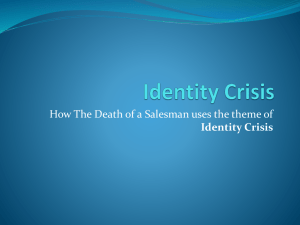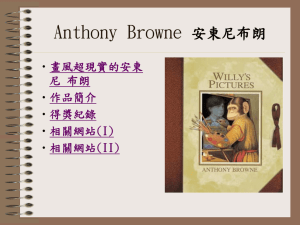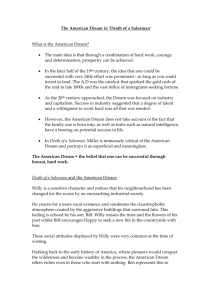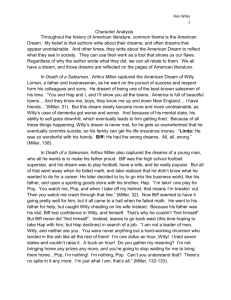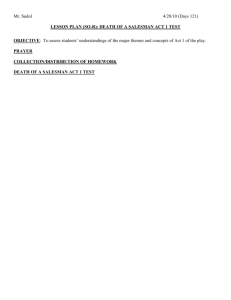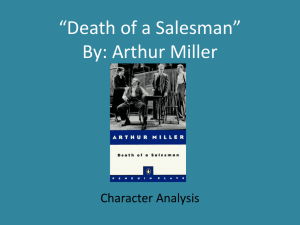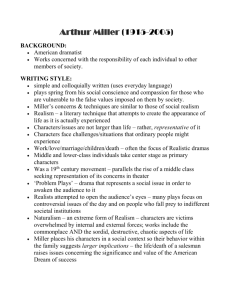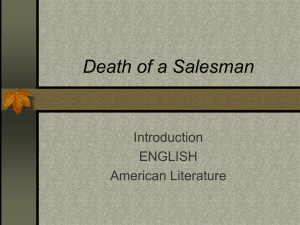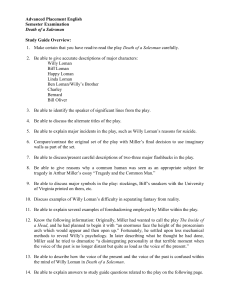Mary Kate Mulligan
advertisement
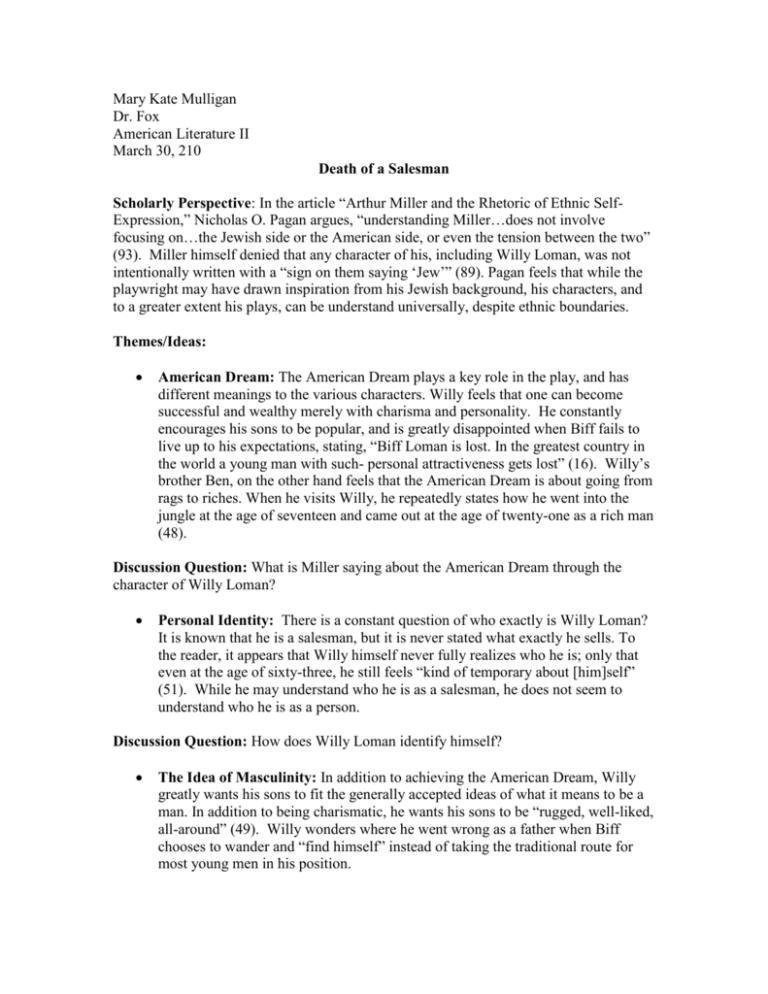
Mary Kate Mulligan Dr. Fox American Literature II March 30, 210 Death of a Salesman Scholarly Perspective: In the article “Arthur Miller and the Rhetoric of Ethnic SelfExpression,” Nicholas O. Pagan argues, “understanding Miller…does not involve focusing on…the Jewish side or the American side, or even the tension between the two” (93). Miller himself denied that any character of his, including Willy Loman, was not intentionally written with a “sign on them saying ‘Jew’” (89). Pagan feels that while the playwright may have drawn inspiration from his Jewish background, his characters, and to a greater extent his plays, can be understand universally, despite ethnic boundaries. Themes/Ideas: American Dream: The American Dream plays a key role in the play, and has different meanings to the various characters. Willy feels that one can become successful and wealthy merely with charisma and personality. He constantly encourages his sons to be popular, and is greatly disappointed when Biff fails to live up to his expectations, stating, “Biff Loman is lost. In the greatest country in the world a young man with such- personal attractiveness gets lost” (16). Willy’s brother Ben, on the other hand feels that the American Dream is about going from rags to riches. When he visits Willy, he repeatedly states how he went into the jungle at the age of seventeen and came out at the age of twenty-one as a rich man (48). Discussion Question: What is Miller saying about the American Dream through the character of Willy Loman? Personal Identity: There is a constant question of who exactly is Willy Loman? It is known that he is a salesman, but it is never stated what exactly he sells. To the reader, it appears that Willy himself never fully realizes who he is; only that even at the age of sixty-three, he still feels “kind of temporary about [him]self” (51). While he may understand who he is as a salesman, he does not seem to understand who he is as a person. Discussion Question: How does Willy Loman identify himself? The Idea of Masculinity: In addition to achieving the American Dream, Willy greatly wants his sons to fit the generally accepted ideas of what it means to be a man. In addition to being charismatic, he wants his sons to be “rugged, well-liked, all-around” (49). Willy wonders where he went wrong as a father when Biff chooses to wander and “find himself” instead of taking the traditional route for most young men in his position. Discussion Question: What is masculinity according to Willy Loman? Does he fit this description? Literary Elements: Symbolism: Diamonds symbolize wealth and success to Willy, which unlike his brother Ben, he has been unable to attain in his job as a salesman. Repetition: “[W]hen I was seventeen I walked into the jungle and when I was twenty-one I walked out. And by God, I was rich!” (48,52) Tone: The tone varies throughout the play. For the most part, it is sincere and affectionate towards Willy. It can at times however be sarcastic and blunt when dealing with Willy’s downfall.

